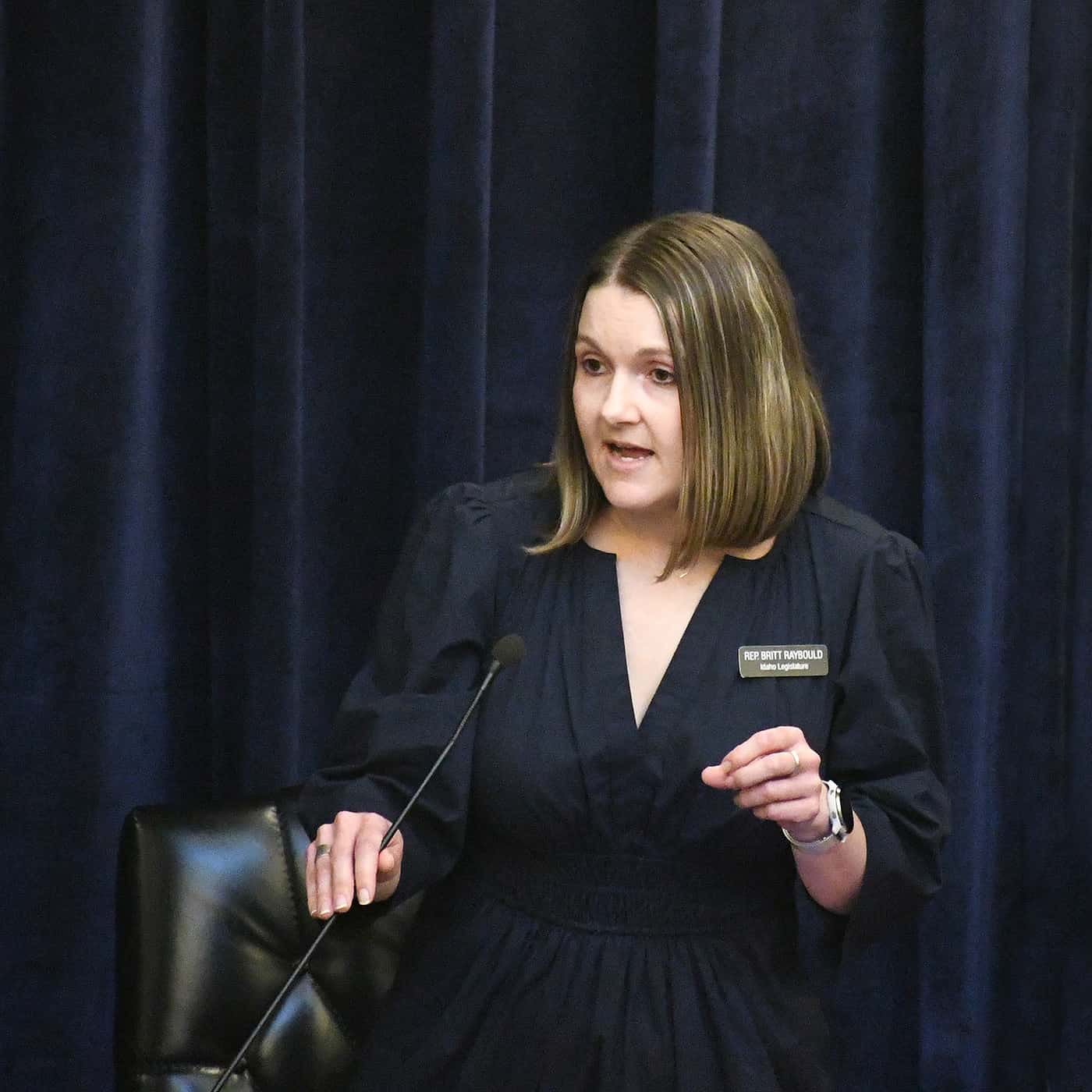


It is interesting to see Rep. Britt Raybould attempt to rewrite history pertaining to her support for Idaho’s Medicaid budget. Although she didn’t mention the size of the budget — passed as House Bill (HB) 369 — it was $4.54 billion, which is literally one-third of the entire all-funds budget of $13.87 billion.
In a recent Facebook post, Rep. Raybould reflected that the just-passed Medicaid budget was the largest in state history, and stated, “We cannot maintain that level of spending in the future. This year’s budget reflected a few things where we had limited legislative control because the increases reflected non-discretionary spending. Non-discretionary means the budget amounts we saw on the bottom line came from a formula in Idaho law.”
What she doesn’t mention is that the budget contained over $240 million in new discretionary spending that is not tied to the formula she mentioned. While some of it was arguably necessary, clearly not all of it was, such as another $72 million for behavioral health.
Further, Raybould says, “By the time we set this year’s budget, the department had removed 13,000 ineligible participants. We adjusted the budget to reflect that reduction by just over $150 million.”
While Rep. Raybould touts the $150 million budget reduction for removing ineligibles from Medicaid, she doesn’t mention that this only came about because the earlier Medicaid budget bill, HB334, failed on a close vote of 34-36. Raybould joined the Democrats and her more liberal Republican colleagues in supporting HB334, which did not have the $150 million reduction. HB334 was not supported by the majority of Republicans on the House floor because it did not cut the budget by removing ineligibles. While Raybould implies that the budget was adjusted to reflect removing ineligibles, this only happened because the larger budget she supported failed. And the knowledge that many ineligible people were left on Medicaid during the COVID “public health emergency” was not new information that came about after the first bill failed. Juliet Charron, the Medicaid Division Administrator, provided a presentation back on January 23rd demonstrating that up to 151,000 Medicaid participants were of questionable eligibility.
Other members of the Joint Finance and Appropriation Committee wanted to remove more than just 13,000 ineligibles from the budget, given that represented less than 10% of those potentially ineligible.
In any case, the overarching point is that Rep. Raybould is not a leader in the Medicaid budget reform fight. And this is further reflected by earlier votes when she was Representative during the 2019 and 2020 sessions. She voted for Senate Bill (SB) 1418 during the 2020 session, which was a $3.12 billion Fiscal Year (FY) 21 Medicaid budget that represented a 10% increase from the previous year. And she also voted in favor of SB1171 during the 2019 session, the $2.83 billion Medicaid budget for FY20. That’s right; the Medicaid appropriation has increased by 60% in four years. Now Rep. Raybould is taking notice and apparently trying to cover her tracks on her earlier votes.
Photo credit Daniel Murphy
Rep. Raybould's entire post is reproduced below:
Across 13 counties in east Idaho, 116,044 of our friends and neighbors participate in Medicaid. During the public health emergency, the Biden administration prevented states from removing folks who no longer met the program requirements. However, Idaho’s Department of Health and Welfare continued tracking participant eligibility. With the end of the public health emergency, the department can restart the process of cleaning up the participant rolls. Over the next few months, they’ll help ineligible individuals move to health plans in the private market via Your Health Idaho.
During the last legislative session, we saw the largest budget for Medicaid in the state’s history. We cannot maintain that level of spending in the future. This year’s budget reflected a few things where we had limited legislative control because the increases reflected non-discretionary spending. Non-discretionary means the budget amounts we saw on the bottom line came from a formula in Idaho law. That formula determines what we pay for certain services, including increased usage, inflation, provider fees and prescription drug costs.
By the time we set this year’s budget, the department had removed 13,000 ineligible participants. We adjusted the budget to reflect that reduction by just over $150 million. There’s also more good news. If Medicaid does receive fewer bills because people don’t use as many services in the coming year, the state’s general fund gets those dollars back. Dollars only go out if a participant receives a service, and those dollars only go to the providers, not the participants themselves.
Second, under House Concurrent Resolution 9, a joint task force will review a number of options for managed care to help reduce Medicaid costs. Also, a recent cost savings report will likely provide additional recommendations for us to pursue. We anticipate having legislation in the next session to help us get Medicaid costs under control.
We know how important it is to our communities that the Legislature gets Medicaid right. Some of our friends and neighbors depend on it for lifesaving care. We owe it to all Idahoans to make this program more sustainable.

